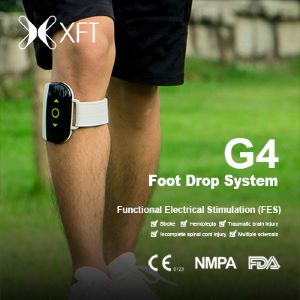Brain Injury
Association of Military Characteristics with TBI Service-Connected Disability and VA Compensation
Tuesday, October 31, 2023
3:15 PM - 3:21 PM
Location: Station 7

Clara E. Dismuke-Greer, PhD (she/her/hers)
Research Health Science Specialist
Health Economics Resource Center (HERC), VA Palo Alto Health Care System
Brunswick, Georgia, United States
Poster Presenter(s)
Research Objectives: To examine the association of military characteristics with the likelihood of a service-connected disability (SCD) rating for traumatic brain injury (TBI) and total monthly SCD compensation by TBI SCD status.
Design: Retrospective observational cohort study
Setting: Veterans Health Administration (VHA) / Veterans Benefits Administration (VBA)
Participants: 1,319,590 Veterans from the DoD/VA LIMBIC-CENC Phenotype study with at least 1 SCD rating from the VBA.
Interventions: N/A
Main Outcome Measures: SCD designation for TBI based on VA Schedule for Rating Disabilities (VASRD) diagnostic codes (8045 [residuals of TBI] and 9304 [neurocognitive disorder due to TBI]) and monthly VBA compensation per veteran during 2022.
Results: Among 1,319,590 Veterans with any SCD rating, 93,911 (7.1%) had a TBI SCD. Median compensation in 2022 was approximately $3,084 higher for Veterans with a TBI SCD versus those without a TBI SCD ($24,425 vs $21,341, respectively). In fully adjusted analyses, Veterans who were deployed (AOR=2.0; 95% CI 1.94,2.06) and those with combat exposure (AOR=1.28; 95% CI 1.24,1.32) were more likely to have a TBI SCD.
TBI SCD was associated with an additional $268 in compensation per month. Each additional SCD condition was associated with $97 in monthly compensation. Veterans who were deployed received $40 more each month, relative to those who were not deployed, while Veterans with combat exposure received $61 higher in monthly compensation than those without combat exposure.
Conclusions: Deployment and combat exposure were the strongest predictors of TBI SCD. However, despite having the highest odds for TBI SCD, deployment and combat exposure were associated with relatively low amounts of total monthly SCD compensation compared with other military characteristics.
Author(s) Disclosures: We wish to acknowledge the inspiration and mentoring of Ralph G. DePalma, MD, FACS.
Work supported by U.S. Army Medical Research Acquisition Activity under Long-Term Impact of Military-Relevant Brain Injury Consortium (LIMBIC) Award/W81XWH-18-PH/TBIRP-LIMBIC . Dr. Pugh was supported by VA HSR&D Research Career Scientist Award (IK6HX003762). The views expressed do not represent the official policy or position of the Defense Health Agency, Department of Defense, or Department of Veterans Affairs.
Design: Retrospective observational cohort study
Setting: Veterans Health Administration (VHA) / Veterans Benefits Administration (VBA)
Participants: 1,319,590 Veterans from the DoD/VA LIMBIC-CENC Phenotype study with at least 1 SCD rating from the VBA.
Interventions: N/A
Main Outcome Measures: SCD designation for TBI based on VA Schedule for Rating Disabilities (VASRD) diagnostic codes (8045 [residuals of TBI] and 9304 [neurocognitive disorder due to TBI]) and monthly VBA compensation per veteran during 2022.
Results: Among 1,319,590 Veterans with any SCD rating, 93,911 (7.1%) had a TBI SCD. Median compensation in 2022 was approximately $3,084 higher for Veterans with a TBI SCD versus those without a TBI SCD ($24,425 vs $21,341, respectively). In fully adjusted analyses, Veterans who were deployed (AOR=2.0; 95% CI 1.94,2.06) and those with combat exposure (AOR=1.28; 95% CI 1.24,1.32) were more likely to have a TBI SCD.
TBI SCD was associated with an additional $268 in compensation per month. Each additional SCD condition was associated with $97 in monthly compensation. Veterans who were deployed received $40 more each month, relative to those who were not deployed, while Veterans with combat exposure received $61 higher in monthly compensation than those without combat exposure.
Conclusions: Deployment and combat exposure were the strongest predictors of TBI SCD. However, despite having the highest odds for TBI SCD, deployment and combat exposure were associated with relatively low amounts of total monthly SCD compensation compared with other military characteristics.
Author(s) Disclosures: We wish to acknowledge the inspiration and mentoring of Ralph G. DePalma, MD, FACS.
Work supported by U.S. Army Medical Research Acquisition Activity under Long-Term Impact of Military-Relevant Brain Injury Consortium (LIMBIC) Award/W81XWH-18-PH/TBIRP-LIMBIC . Dr. Pugh was supported by VA HSR&D Research Career Scientist Award (IK6HX003762). The views expressed do not represent the official policy or position of the Defense Health Agency, Department of Defense, or Department of Veterans Affairs.

.jpg)
